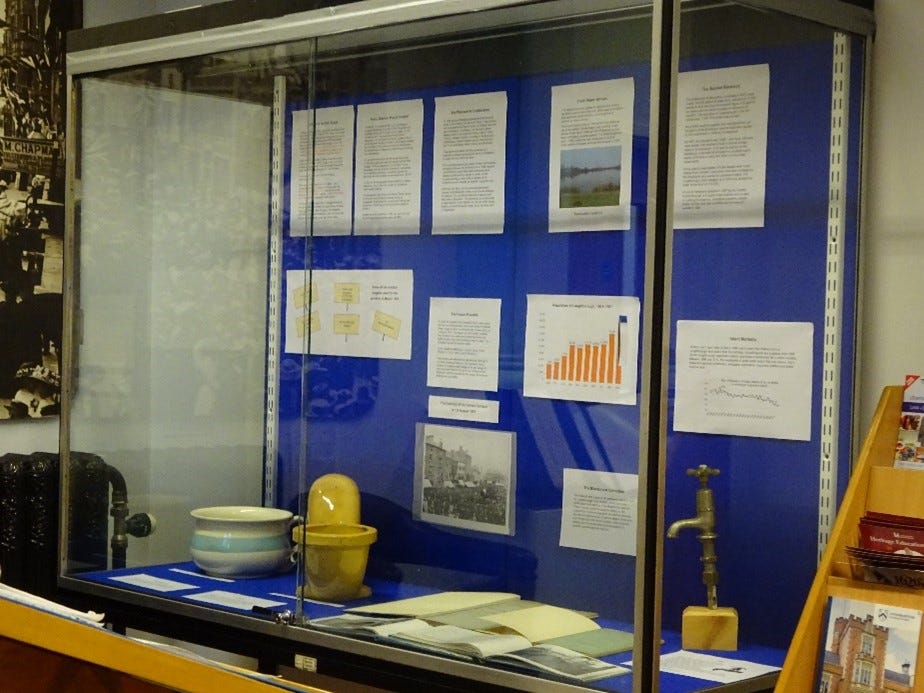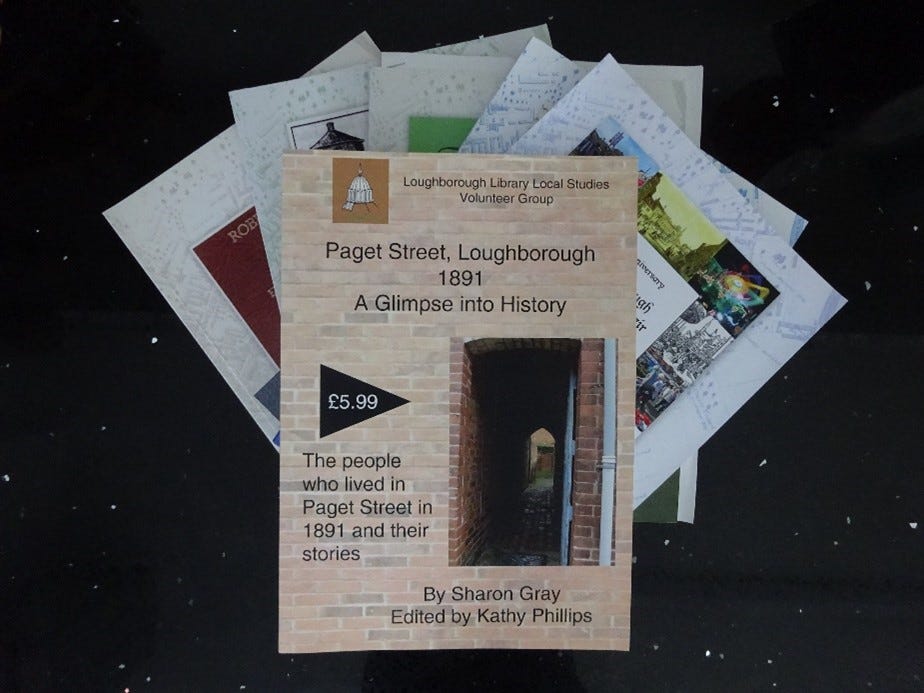Local Studies Libraries
United Kingdom
Years ago, every city, town and village in the United Kingdom would have had a local studies collection within their public library. These days, you are lucky if you have a public library.
Many local studies libraries are part of the national network of public libraries, sometimes within the main library building, sometimes hidden away, or occasionally in a dedicated building. The best way to find your library is to do a web search for your local county council, or Unitary Authority, and find the page about libraries. You might have to use the site's A-Z list, a search box, or click on another tab to get you to the library. From this you should be able to discover all kinds of information such as where the relevant library is, when it is open, accessibility, and contact details (including social media), together with information about the resources available such as the collections and services. Some local studies libraries will be listed under the main library page, others will be on a separate page.
Information presented about the Loughborough town library includes information about the Local Studies Library.
In your local studies library you can expect to find a collection of books about the local area – and maybe beyond – about local people, local buildings, and so on. You might also find a collection of trade and street directories, maps, and newspapers and magazines. Your library might also have a unique photograph collection, and a collection of ephemera that sits better within the library than in the county record office. Most of these items will be available for you to consult, but probably not to take out of the library. It’s possible that your library might subscribe to one of the family history online packages, so if you’re a registered library member, you might be able to search these.
You’re unlikely to find diocesan records, public records, tithe records, or manorial documents in your local studies library as these will be kept at the county record office.
The local studies collection is often housed in the public library, so finding resources using the library’s online catalogue is usually possible. However, in some cases, records of what’s in the collection can be on different systems. If you can visit the library, this is often the best way to find out what they’ve got, either by asking the staff, or browsing the shelves – although not all of the collection will necessarily be on display. Alternatively, you can contact them in other ways.
Most online library catalogues have a single search box, where you can input a keyword, or book title etc.. There is also often an advanced search option, where you can search for specific titles, authors etc. A word of caution – an advanced search will sometimes search for exactly what you asked for, unlike, for example, a Google search which will make suggestions if it can’t find you an exact match.
Leicester City Council. Library catalogue advanced search
Your local studies library will be open for you to pop in in person and either browse the collection or consult the staff who will be able to help you with your enquiry or with finding resources that will help you. Your library might be able to offer you a photocopying service, perhaps for a small fee. Some libraries offer to research for you, and have a scale of charges for this. Of course, much of this depends upon the size of your local studies library, so if you are in a big city, you might find the opening hours are quite extensive, there will be plenty of staff on hand to help you at point of need, and facilities available for you to do your own photocopying or scanning.
Some local studies offer enhanced services to users. My own local studies library in Loughborough also publishes books and leaflets that have been researched by members of the team, puts on a series of regular exhibitions, and the volunteers often go out to events. My local studies library also conceived and convenes the meeting of local heritage and history groups in the immediate area, giving organisations a valuable networking opportunity. Each local studies library will offer different services.
Exhibition in Loughborough local studies library
Publications by Loughborough local studies library
Now it is over to you! If you are not aware of your local studies library, try searching for it online via your council’s website, and find the details of opening hours etc. You could also try searching the catalogue for something you think the library ought to have in their collection. The library staff will be most welcoming when you step through the door to the wonderful world of libraries, and they will be sure to share their knowledge of the collection! Have a lovely trip!!
References and Resources:
Daniel H. Mutibwa, ‘Community Engagement in Heritage Work: Spotlighting the Loughborough Library Local Studies Volunteer Group’. https://lynneaboutloughborough.blogspot.com/2023/11/community-engagement-in-heritage-work.html
This is really aimed at librarians, but it should give a library customer a bit of a heads up about what to expect from a local studies library, that might be following guidelines suggested by this group. https://lslibrarians.wordpress.com/toolkit/
Chartered Institute of Library and Information Professionals (CILIP) Local Studies Group also provides a map which shows where many local studies libraries can be found: https://lslibrarians.wordpress.com/find-a-local-studies-library/
A map of UK public libraries: https://libraryon.org/map
Although a little old now, this collection of guides from a specific public library service gives a good idea of what you could expect to find in your own local studies library: https://valencehousecollections.co.uk/types/local-studies-guides/
A very introductory guide to historical research from the BBC: https://downloads.bbc.co.uk/history/handsonhistory/a_guide_to_historical_research.pdf
An old site from 2010 on starting out in local history, and visiting the local studies library: https://www.local-history.co.uk/gettingstarted.html#visit1
Another older resource about the importance of local studies libraries and librarians, and about their offering: https://manuscriptsandmarginalia.wordpress.com/tag/librarianship/
Lynne Dyer. After graduating from Loughborough University, Lynne worked as a professional librarian for 40 years. A trained tour guide, in 2013 Lynne created the blog lynneaboutloughborough, to promote the town, and posts have been viewed over 550,000 times. Lynne has a local history qualification from OUDCE, and has written 4 books about Loughborough for Amberley.
Find Lynne on X @stjerome1st on blogger www.lynneaboutloughborough.blogspot.co.uk and on email lynneaboutloughborough[at]gmail[dot]com








I've just had a conversation on FBook regarding this, or at least how librarians are being replaced with library assistants, the ones I've come across being untrained. Professionalism is missing, such as gaining a blank look in response and not much elseto a query. Whatever happened to "Off the top of my head, I don't know, but I'll find out and..." [rolls eyes]
Thanks for your walk through article.